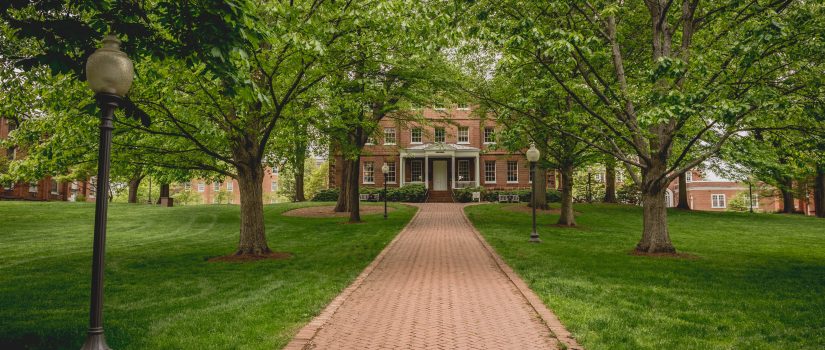Getting To Know St. John’s College (MD and NM)
St.John’s College has more in common with colleges of the distant past than other modern college. The curriculum is taught around The Great Books, famous works of mathematics, science, philosophy, literature, music, politics, and more. Courses are taught by professors, aka ‘tutors’, in seminar rooms, much like a college education over two centuries ago. St. John’s College is also one of the Colleges That Change Lives, so it has a higher profile than many other liberal arts colleges. This is due to the uniqueness and rigor of the curriculum.
I had the opportunity to talk with Benjamin Baum, Vice President for Enrollment Management at St.Johns College. Please listen in.
Chances are that you will be exposed to activities and subjects at St. John’s that you dreaded or never learned in high school.You will have challenging original works to read, demanding discussions and rigorous assignments with no interpretive texts to help. If you have a strong phobia against a particular subject, especially math or science, you might want to consider another college. And if you are shy about reaching for help, this might not be your school. Every student at St. John’s College is also an athlete–in intramural sports. Croquet, sailing, fencing and crew are the only intercollegiate sports. Every student gets a musical experience freshman year, even if they have never sung before. If you don’t want to get out of a comfort zone while you are in college, this is not your school.
Every St.John’s College student gets the same degree: a Bachelor of Arts in Liberal Arts.
From there, you can pursue many opportunities. Because of the rigor of the undergraduate education, St. John’s graduates are quite successful at gaining admission to graduate and professional schools. The college helps by offering opportunities to apply for funded internships as well as a fellowship to help you take pre-requisite courses for graduate or professional school.
The rigorous education will be great preparation for graduate school, and it is attractive to firms that demand strong research and writing skills as well as original thinking. It might also teach you to be diplomatic. You are learning from texts that even PhD scholars struggle to understand, so you will never “know everything.” St. John’s uses “don rags” or conferences where students receive an oral evaluation from all of their tutors. The college also keeps a more traditional transcript on file along with a written version of the evaluation.
Founded in Annapolis in 1696, St.John’s College is the third oldest college in the country.
But I could not find too many alumni registered on LinkedIn.com–just over 5,000–but over 1,000 are based in and around the Baltimore-Washington Corridor. Over 500 are based in and around New York City. One advantage of having the same academic experience: it gives students and alumni a great frame of reference for networking. Columbia University’s Columbia College Core provides about half this experience. Their grads have no problem finding work, if they are diligent enough to seek it.
You might imagine that the St.John’s College is quite personal, and you would be right.
St.John’s College welcomes around 225 freshmen each year on two campuses, one in Annapolis, Maryland, the other in Santa Fe, New Mexico. The school welcomes fall and spring admits. The academics are the same on both campuses, though the settings are quite different. Both are quite nice. Annapolis (picture above) appears to be the better choice if you want to walk into a historic waterfront town from campus. Santa Fe (photo below) is more breathtaking if you prefer a natural landscape. Enrollments on both campuses are quite small. There’s fewer than 500 undergrads in Annapolis, and about 320 in Sante Fe. Diplomacy and tact are important for success among such a small student body. Fail to master either and most of the campus community will know. Everyone lives on campus on both campuses. During our COVID reality every one was online, but now students have returned to campus, and the college is using a hybrid format in classes.

The St.John’s College class profile is statistically similar to a very selective college.
However, demonstrated interest will be more important for admissions, given the uniqueness of the curriculum. Being creative and well-read across a wide variety of subjects really helps before you get here, probably more important than traditional measures such as a 4.0+ GPA or 1400+ SAT scores.This school has been test optional since 1979. But if you are serious about St. John’s College, be prepared to address some challenging essay questions and write well.
In Annapolis St. John’s College retains its students at about the same rate as other selective liberal arts colleges. Eighty-six percent of the freshmen who arrived on the Annapolis campus returned for their sophomore year. But the retention rate in Santa Fe, the smaller campus, was lower, at 76 percent. Two-thirds of the students who come to Annapolis finish and graduate on time. However, the four-year graduation rate in Santa Fe is lower. Just over half of their freshmen finish and graduate on time.
St.John’s College charges $35,000 for tuition, lower than many flagship schools will charge non-resident students.
Three years ago, the college made the decision to reset tuition charges to their lowest level in a decade. At the same time that the college reduced tuition, it announced that it would embark on a five-year $300 million campaign. It raised $250 million as of June, 2020. You can graduate owing about the same as would to Home State U. The average student borrower who graduated in 2019 owed $27,000, the maximum that she could have borrowed under the Federal State Loan Program.
So, if costs are a concern, but you like the academic approach of St. John’s College, don’t be afraid to apply. It costs you nothing to submit the application. But take a visit, preferably more than one, in person or virtual, to make sure you are ready for a very unique educational experience.
Learn more about St.John’s College in this interview with Benjamin Baum!
Need help on the journey to college? Contact me at stuart@educatedquest.com or call me at 609-406-0062.
Want to know more about me? Check out these podcasts!
Listen to my talk, College Is A Learning AND Living Community, hosted by Dr. Cynthia Colon from Destination YOUniversity on Voice of America Radio!
Listen to my talk, What Exactly Is a Good College? hosted by test-prep experts Amy Seeley and Mike Bergin on Tests And The Rest!




